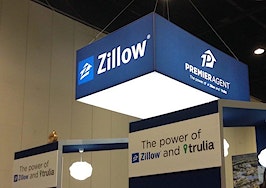- Policies meant to poise real estate professionals to modernize their businesses.
WASHINGTON — The board of directors of the National Association of Realtors (NAR) today approved three changes to MLS policies that are meant to position agents and brokers to leverage technology in their businesses.
The policies do three things, according to NAR’s Multiple Listing Issues and Policies Committee, which met at NAR’s midyear conference, the Realtors Legislative Meetings and Trade Expo, this week:
- Require listing broker attribution in IDX displays (this was previously optional for MLSs)
- Authorize delivery of IDX listing information via voice-activated devices such as the Amazon Echo, Google Home and Microsoft’s Cortana
- Update existing lockbox security requirements to reflect current practices and technology, including the use of temporary access codes, opening lockboxes with mobile devices, security protocols to protect against cyber attacks, consideration of criminal history when issuing keys and deletion of outdated and redundant language
All 700-plus Realtor association-owned MLSs must comply with NAR MLS policies or risk losing liability insurance the trade group provides.
Listing broker attribution
The board approved the policies with virtually no opposition, though one director objected to the listing broker attribution mandate because she said her MLS would no longer be able to have listings attributed to the MLS, rather than the broker, in IDX displays.

Glenn Kelman
Earlier in the week, Redfin CEO Glenn Kelman pushed for better listing broker attribution from MLSs at the MLS Association Executives Session.
“We have made a deep bet in being a real estate broker. This is my craft. This is our calling. It’s what we love doing,” he said.
“And as part of that bet, we decided the best way to get data is the multiple listing service. We need to make the MLS work for everyone, not just Trulia or Zillow or realtor[.com] or Redfin. Everyone.”
Listings should include a link to the listing broker’s website, Kelman said, noting that “it’s going to hurt Redfin’s business for awhile … but it’s going to be a more fair system.”
In his animated talk, he urged conference attendees to bet on the MLS and modernize it.
“We can win, baby, we can win! We just have to work together to believe in the future of real estate,” he said.
Today’s MLS policy change did not mandate links back to broker websites in IDX displays. The policy just requires that all listings “identify the listing firm in a reasonably prominent location and in a readily visible color and typeface not smaller than the median used in the display of listing data.”
The MLS policy amended was Section 18.3.3 of the model IDX rules, which was revised from “optional” to “mandatory” and moved to Section 18.2.12.
Where does listing broker attribution go during an audio search?
The policy allowing for audio IDX search passed with an amendment proposed by the NAR Executive Committee, which mandates that, after a consumer conducts an audio search, the disclosures required under IDX — now including listing broker attribution — be delivered electronically to the consumer, through email or the device’s app, for example.
The audio IDX delivery is considered a “minimal display” equivalent to a Facebook post, tweet or text message and like other minimal displays is exempt from IDX disclosure requirements but only when linked directly to a display that includes the required disclosures.
There had been some discussion at the MLIP Committee meeting earlier in the week debating whether listing broker attribution should happen during the audio search itself, but that proposal was ultimately withdrawn after multiple committee members noted that consumers would consider such attribution a commercial.

Sam DeBord
“They’ll turn it off [and] someone who’s not a broker will build a better, faster tool,” said Sam DeBord, committee member, broker and regular Inman contributor.
“We hold our brokers back when we’re afraid of what might happen.”
The original request to allow voice-activated IDX search under NAR MLS Policy Statement 7.58 came from real estate broker Miguel Berger, who is also the CEO of startup Voiceter Pro. The startup developed a property search app for the Amazon Echo late last year.
Lockboxes
The changes to NAR’s lockbox security requirements, found in MLS Policy Statement 7.31, inspired virtually no discussion or debate at either the MLIP meeting or the NAR board meeting.
“Due to advancements in technology and the increase in use of lockbox systems by brokers, licensees, service providers and others, not to mention different lockbox cost structures and threats to security, it was determined at the August 2016 meeting of the MLS Technology and Emerging Issues Advisory Board that comprehensive updating of the requirements was necessary,” the MLIP Committee said in its conference agenda.
Here are some of the additions to the policy:
A mobile device (such as, a smart phone, tablet, fob, etc.) can transmit a key to access a lockbox using standard protocols, including, Bluetooth, ZigBee, infrared technology, and others. The applications and software used by mobile devices must contain security controls to allow only authorized users access to the lockbox.
As a matter of local discretion, the listing broker or agent can issue temporary codes to access the lockbox and property on terms and conditions agreed to in advance by the seller. Temporary codes/access must expire within seventy-two (72) hours after being issued or must be under the control of the listing broker or agent. Temporary codes must be a minimum field size of five (5) characters. (XX,XXX)
Electronic lockboxes and electronic keys running on mobile devices must incorporate security protocols to prevent the following types of cyber-attacks:
- Where an unauthorized user can override or escalate their security credentials.
- Where the communication session between the electronic lockbox and key are recorded and played back later to gain unauthorized access.
- Forging of electronic credentials that could allow an unauthorized user the ability to masquerade as an authorized user.
- Digitally signed updates to electronic keys running on mobile devices or electronic lockbox firmware plus a secured update process to prevent unauthorized software from being introduced into the lockbox system.
- Transmission(s) of frequencies to deceive the lockbox electronics into opening.
Associations and MLSs may, at their discretion, lease keys to affiliate members of associations who are actively engaged in a recognized field of real estate practice or in related fields. In such instances, the lease agreement shall be signed by the keyholder and by a principal, partner, or corporate officer of the keyholder’s firm. (Amended 11/97)
Individuals may be required to pay lockbox costs as part of association dues or as part of MLS participation fees pursuant to MLS Policy Statement 7.57, Categorization of MLS Services, Information, and Products and pursuant to NAR Bylaws Official Interpretation #32. No one shall be required to lease a key from the association except on a voluntary basis.
Key lease agreements may contain a liquidated damages provision to offset some or all of the costs in reestablishing the security of the system if it is determined that the security has been compromised through the negligence or fault of the keyholder. (Amended 11/97)
The NAR board also approved a change concerning consideration of an individual’s criminal history in regards to lockbox access. According to the new policy, associations and MLSs may refuse to sell or lease lockbox keys, may terminate existing key lease agreements, and may refuse to activate or reactive any key held by an individual who has been convicted of a crime within the past seven years under certain circumstances.
These include whether the association or MLS “determines the conviction relates to the real estate business or puts clients, customers, other real estate professionals, or property at risk, for example through dishonest, deceptive, or violent acts.”






